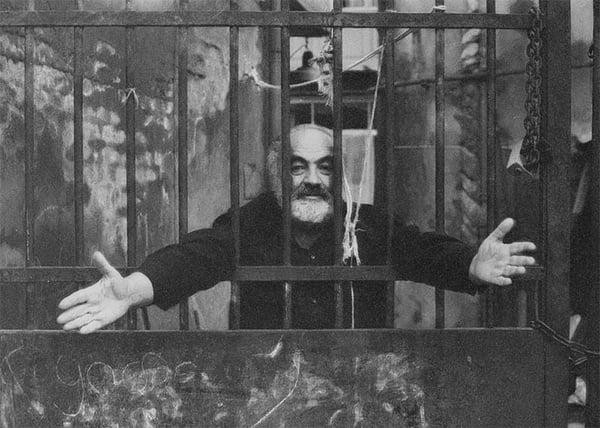Celebrating Parajanov – the cinematic rebel who revived national identity
In Eastern Europe, a region ravaged by wars, genocides, and ethnic cleansing, division often prevails. Time and time again, ethnic, religious, and cultural divergences are manipulated into devastating conflicts and crises – from Ukraine to Nagorno-Karabakh, from Transnistria to the breakaway regions of Georgia. Only a few individuals have celebrated the region's rich history, unique cultures, and vibrant traditions, igniting national consciousness across Eastern Europe and uniting the peoples of the region through art. Sergei Parajanov was one of them. This year, the region celebrates Parajanov's 100th birthday and honours his incredible legacy.
Born in 1924 to Armenian parents in Tbilisi, Georgia's multiethnic capital, Parajanov was surrounded and inspired by the city's vibrant interplay of Armenian, Georgian, and Azerbaijani cultures. He later studied cinematography in Moscow and eventually moved to work in Kyiv, Ukraine, where he familiarised himself with Ukraine's history and culture. Fascinated with the cultures of the South Caucasus and Ukraine, Parajanov produced ”The Colour of Pomegranate” (1969) and ”The Shadows of Forgotten Ancestors” (1965), defying the conventional norms of state-mandated socialist realism. Considered as Parajanov's masterpieces, these two films, rich in visual metaphors, religious iconography, and ritualistic imagery, remain to this day two of the most aesthetically pleasing representations of Hustsul-Ukrainian and Armenian-South Caucasian cultures.
Threatened by his unconventional, often flamboyant art, his queerness and whimsicality that stood in sharp contrast to the bleakness of Soviet socialist realism, the Soviet authorities routinely censored Parajanov's work and imprisoned him twice on charges of homosexuality.
While hated and denounced by Soviet authorities, Parajanov's genius was revered all across Europe, where his films won numerous awards. His avant-garde art and contribution to cinema have been recognised by various artists, critics, and filmmakers. Directors such as Federico Fellini, Jean-Luc Godard, and Andrei Tarkovsky hailed him as one of the greatest filmmakers of his time. Furthermore, the music videos of Madonna’s ”Bedtime Story,” and Lady Gaga's ”911” are all inspired by Parajanov's art and make (explicit) references to his films.
In 1988, two years before his death, Parajanov stated in an interview ”Everyone knows that I have three motherlands. I was born in Georgia, worked in Ukraine and I'm going to die in Armenia.” In recognition of his role in the cultural renaissance of Armenia, Georgia, and Ukraine, Parajanov has been celebrated as an enduring symbol of resistance and freedom since the USSR's dissolution in 1991.

